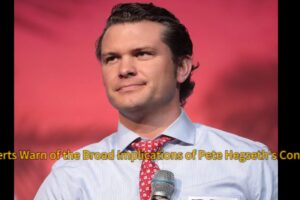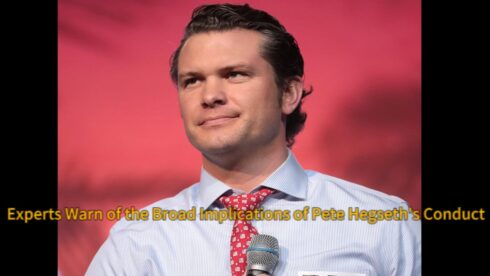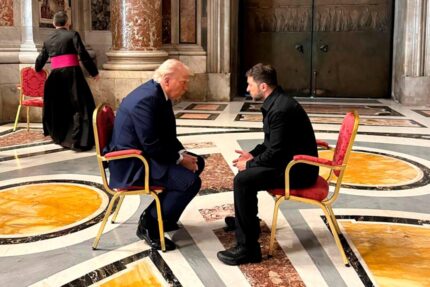Evangelical Christians Feel Abandoned After Trump’s Re-Election: Since President Donald Trump’s return to the White House in 2024, a growing sense of disillusionment has emerged among leaders of the evangelical christians. Many who once championed his presidency now express frustration over his sudden silence and policy shifts that appear to distance him from their core beliefs.
For years, evangelical Christians were among Trump’s most loyal supporters, rallying behind his policies on religious freedom, conservative judicial appointments, and pro-life advocacy. However, recent developments suggest that the relationship is fracturing, leaving many faith leaders feeling used and discarded.
Evangelical Christians: Lack of Communication Fuels Distrust
A significant source of frustration among evangelical christians is the noticeable decline in direct communication between Trump and religious leaders. Before the 2024 election, Trump actively engaged with evangelical figures, frequently attending religious events and promising policies that aligned with their moral and social values.
However, since his re-election, many faith leaders claim their calls and concerns are being ignored. Some prominent pastors and Christian advocates have spoken out, lamenting that their once-accessible ally now appears indifferent to their input. “We were instrumental in his victory, yet now it feels like we’ve been cast aside,” one senior evangelical leader stated.
Policy Decisions at Odds with Faith-Based Missions
Beyond the communication breakdown, several policy decisions have heightened tensions between the Trump administration and evangelicals. One of the most controversial moves was the reduction of funding for the U.S. Agency for International Development (USAID).
Many faith-based organizations rely on USAID to support global humanitarian efforts, including disaster relief, education, and medical aid. Evangelical Christians that engage in international missions see the funding cuts as a direct attack on their ability to serve vulnerable populations. “This is a betrayal of the very values we worked to uphold,” a missionary leader remarked.
Controversial Appointments Shake Religious Confidence
Trump’s selection of key officials has also sparked concern among evangelical christians. Several religious leaders have questioned the theological alignment of certain high-profile appointees, arguing that they do not represent core Christian values.
Some have criticized Trump for elevating figures with more moderate or even progressive stances on social issues, which has led to debates over whether the administration still aligns with the evangelical agenda. “We expected to see people of deep faith in these roles, not individuals who compromise on fundamental principles,” one pastor noted.
Evangelical Christians: Shifts in Social Policies Cause Alarm
Perhaps the most sensitive issue dividing Trump and evangelical christians is his evolving stance on social issues such as abortion and in vitro fertilization (IVF). While evangelicals have traditionally supported strong pro-life measures, Trump’s recent comments and policies have created uncertainty about his commitment to their cause.
His administration’s push for mandated health insurance coverage for IVF has sparked backlash from pro-life advocates who argue that the destruction of embryos conflicts with their beliefs. Additionally, Trump’s ambiguity on abortion restrictions has led some to question whether he remains a reliable champion of conservative values.
Beyond Evangelical Christians: Broader Discontent Among Key Voting Blocs
Evangelical Christians are not the only group voicing dissatisfaction with Trump’s second-term leadership. Suburban women, fiscal conservatives, and even some traditional Republican voters have expressed concerns over his policy decisions and leadership style.
For suburban women, Trump’s handling of reproductive rights has been a divisive issue. Meanwhile, fiscal conservatives worry about government overreach and the financial impact of mandates like IVF coverage. Even supporters of former South Carolina Governor Nikki Haley have shown reluctance to back Trump, particularly in critical swing states like Wisconsin.
Trump’s Approval Ratings Reflect a Growing Divide
Recent polling indicates that Trump’s leadership is facing scrutiny from the broader public. A Reuters/Ipsos poll conducted in February 2025 found that only 32% of Americans approved of his handling of inflation, while just 25% supported his proposal for U.S. intervention in Gaza.
These numbers suggest a nation divided, with even Trump’s most ardent supporters beginning to question his policy decisions. If these trends continue, his administration could face significant political consequences, particularly as it seeks to maintain Republican unity heading into future elections.
What Lies Ahead for Evangelical Christians and Trump?
The growing rift between leaders of the evangelical christians and the Trump administration raises questions about the future of their political alliance. Will Trump attempt to mend fences with his once-loyal faith-based supporters, or will evangelicals shift their backing elsewhere?
For now, many religious leaders are calling for renewed dialogue and clarity on key issues. Without meaningful engagement, the evangelical bloc may reconsider its political loyalties, potentially reshaping the conservative landscape ahead of the next election cycle.














